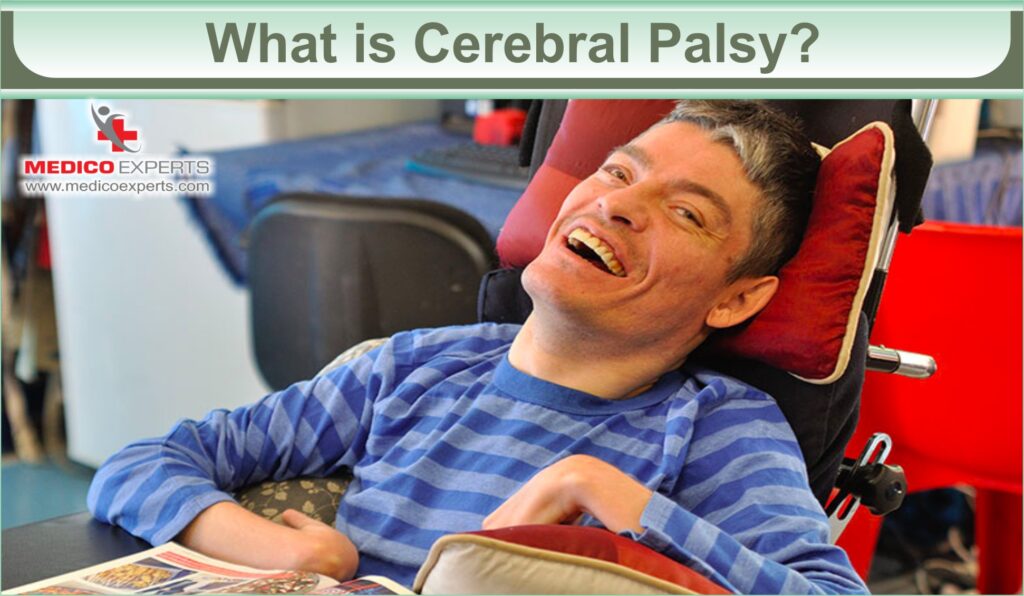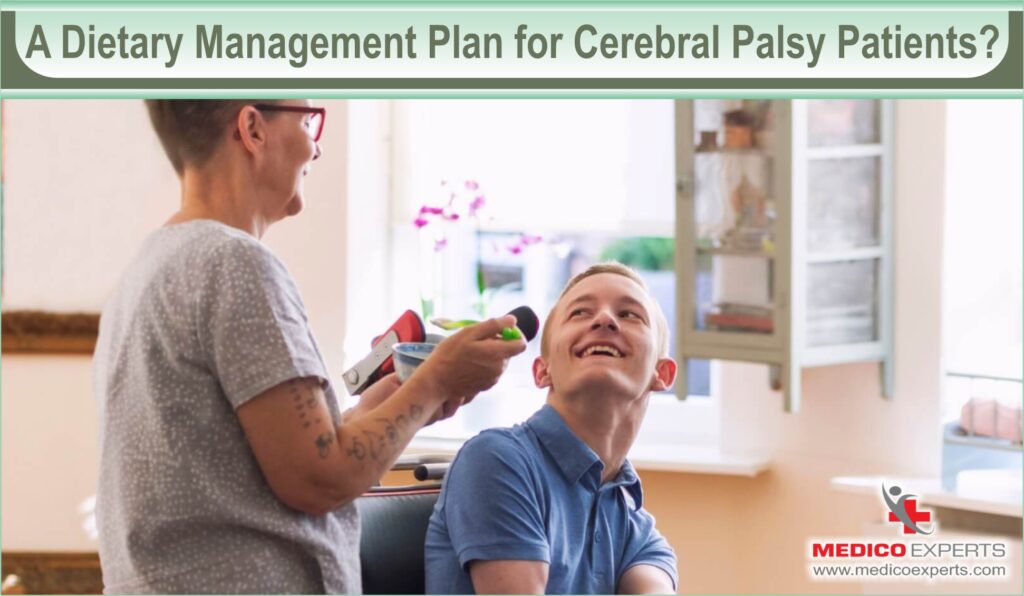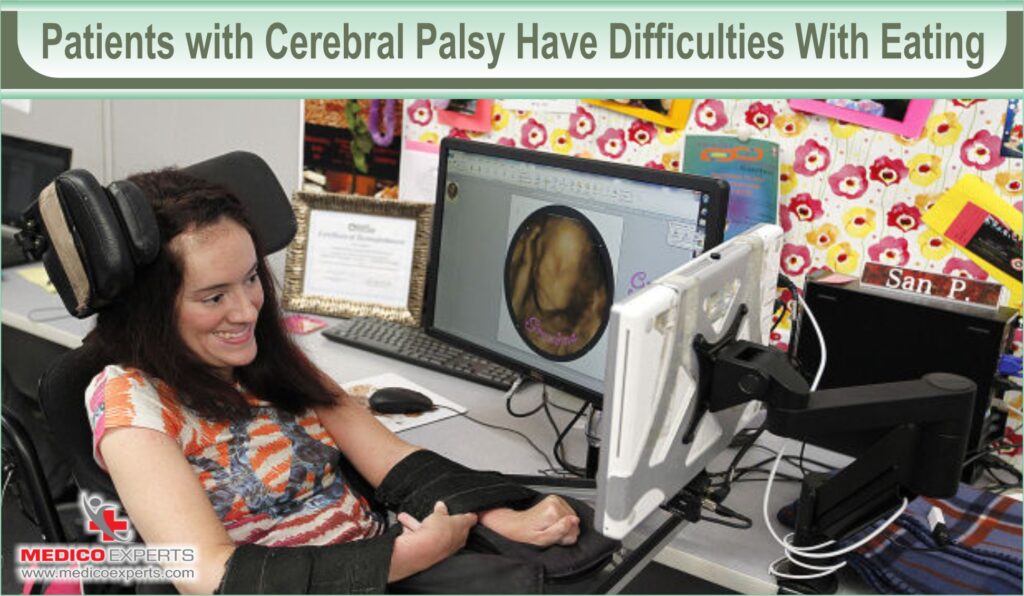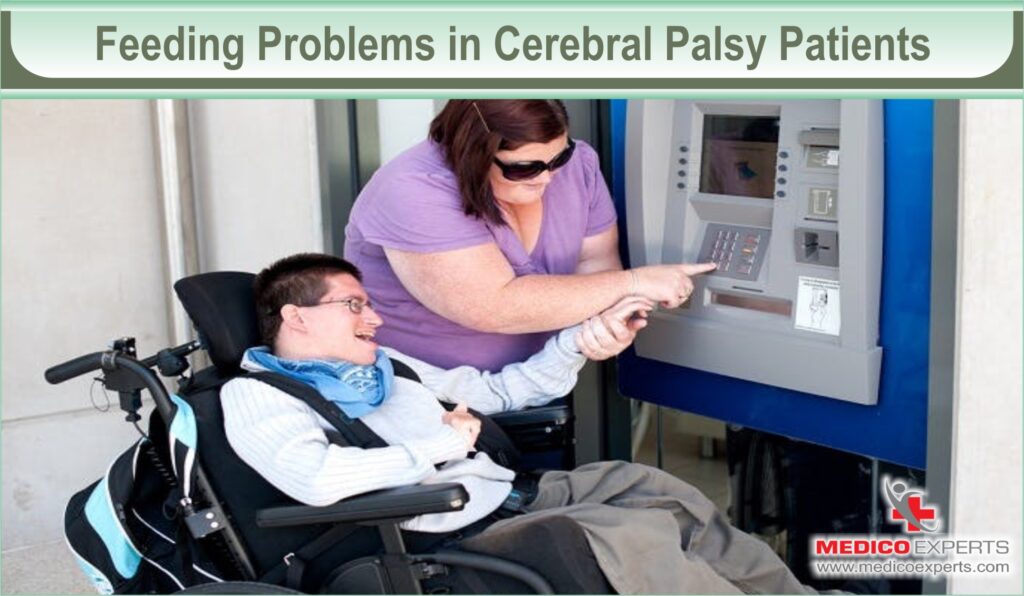Updated: January 2025 | Author: Dr. Khushbu Jain | Reviewed by: Dr. Anant Bagul (Orthopedic surgeon and stemcell specialist)
Dietary choices play a vital role in the life of a person struggling with cerebral palsy.
People with cerebral palsy have unique nutritional needs.
Prioritizing the right foods can significantly improve health and overall well-being, such as supporting bone health with calcium-rich sources.
So, to help you out, here is an evidence-based list of the best foods for cerebral palsy, providing practical insights to boost nutrition and well-being.
What is Cerebral Palsy?

Cerebral palsy (CP) is a set of conditions that impact a person’s movement, balance, and posture. The disorder is prevalent in childhood and is the most common motor disability. The term “cerebral” indicates that it is related to the brain, while “palsy” refers to muscle weakness or difficulties in muscle functioning.
CP results from irregular development of the brain or harm inflicted on it during the development phase, which impairs an individual’s ability to control their muscles. Visit to learn more about the causes of cerebral palsy.
6 Recommended Best Foods for Cerebral Palsy
The best food for individuals with cerebral palsy should be rich in vitamins, minerals, proteins, and other vital nutrients. Eating the right food can help reduce symptoms and improve overall health and well-being.
Here’s a cerebral palsy food list tailored to their needs:
1. High-Calorie, Nutrition-Dense Food
For those with cerebral palsy who have trouble controlling their mouth muscles, it can be hard to chew and swallow food, which can cause them to become undernourished.
To address this, it’s important to include high-calorie and nutrient-dense foods in their diet, such as
- Avocados, eggs, and olive oil for healthy fats and calories.
- Green leafy vegetables for essential vitamins.
These foods will provide the necessary calories without increasing the volume of food they need to eat.
2. Vitamin C-Rich Foods
To help with mood swings, depression, and anxiety in individuals with cerebral palsy, it may be beneficial to increase their consumption of vitamin C.
Vitamin C helps synthesize the norepinephrine neurotransmitter in the brain, and consuming vitamin C-rich foods like
- Oranges, tomatoes, lemons, and bell peppers.
It can also boost the body’s immunity against common illnesses. Therefore, including these foods in the diet is recommended.
3. Calcium and Vitamin D-Rich Foods
Individuals with cerebral palsy need to consume calcium and vitamin D-rich foods. This is because many of them are diagnosed with a medical condition called osteopenia, which causes weak bones due to a lack of calcium.
- Dairy products (milk, cheese, and yoghurt) for calcium.
- Fatty fish and egg yolks for vitamin D to enhance calcium absorption.
4. Foods with Omega-3 Fatty Acids
To improve cognitive functions like learning and memory in people with cerebral palsy who have learning difficulties, it is recommended to consume foods rich in Omega-3 fatty acids, such as
- Salmon, flaxseeds, walnuts, and fish oil.
5. Foods Rich in Zinc
Foods rich in zinc can improve cognitive development and reduce emotional outbursts in individuals with cerebral palsy.
- Beans, nuts, whole grains, and dairy products.
6. Whole Grains
For those with cerebral palsy who spend most of their day in a wheelchair, digestion and blood flow can be slowed due to compression of the abdomen.
To improve digestion and promote healthy gut bacteria, it is recommended to choose whole grains such as
- Quinoa, oats, brown rice, and barley.
This is because whole grains contain probiotics, a form of dietary fiber that is essential for digestive health.
Foods to Avoid
Certain foods may worsen health issues for your child with cerebral palsy:
- Greasy, spicy, and processed foods (chips, deep-fried items) can cause acid reflux.
- Sugary snacks and salty foods increase the risk of obesity and hypertension.
A Dietary Management Plan for Cerebral Palsy Patients

Individuals with cerebral palsy require a well-balanced diet to ensure they receive all the essential nutrients their bodies need. Children with cerebral palsy have the same dietary needs as other children, but their calorie intake may differ due to their muscle tone and activity levels.
Medications used to treat cerebral palsy can also affect nutrient absorption, leading to various health problems.
Children with cerebral palsy often need more nutrients due to weakened muscles or bones, which can increase the risk of fractures. Doctors may suggest dietary supplements to enhance bone strength, such as calcium from milk, cheese, yoghurt, and supplements.
Vitamin D is also essential for bone health and can be obtained through fish, milk, orange juice, supplements, and sunlight. Phosphorus, crucial for healthy teeth and bones, can be found in dairy products or whole grains or taken in pill form. Consult a medical professional for proper dosage recommendations.
Visit to learn more about the types of cerebral palsy.
Patients with Cerebral Palsy have Difficulties with Eating.

If your child has cerebral palsy and has difficulty keeping their mouth closed or thrusting their tongue, you can assist them by offering soft foods that are easier to swallow and digest. You may need to seek the guidance of a speech-language therapist if your child experiences difficulty while swallowing.
It is also recommended to offer your child plenty of fluids throughout the day as this will help keep them hydrated and prevent constipation. Additionally, fluids can help thin out thicker liquids and other foods for easier swallowing.
You should avoid serving your child foods that contain added sugar or are high in sodium. These kinds of foods can cause weight gain and increase the risk of other health issues related to cerebral palsy, such as obesity, diabetes, and hypertension.
In conclusion, individuals with cerebral palsy need to follow a balanced diet that includes nutrient-dense foods and fluids. By doing so, they can help to reduce the risks of health complications associated with cerebral palsy as well as improve their overall quality of life.
It is best to consult with a dietitian or nutritionist to create an individual dietary plan for your child tailored to their specific needs.
It is also important to make sure that the diet plan is flexible and can be easily customized as your child’s needs change over time.
Feeding Problems in People with Cerebral Palsy

Children with cerebral palsy often struggle with feeding, which can negatively impact their growth, overall health, social skills, behavior, and developmental progress. Numerous factors can contribute to feeding difficulties, and it is important to identify and address these factors to ensure sufficient nutrition and growth.
Appropriate assessment and management are best achieved by a multi-professional team skilled in the care of children with cerebral palsy and feeding impairments. In addition to a child’s feeding difficulties, the family and social environment should also be taken into account.
The most common strategies to treat feeding difficulties in cerebral palsy patients include:
- Oral-Motor Therapy: This involves improving a child’s ability to move their mouth, tongue, and lips during eating.
- Postural Therapy: Improving the positioning of your child during meals can help them swallow more easily.
- Nutritional Counseling: A dietitian can provide advice on how to meet your child’s nutritional needs and increase the consumption of certain foods.
- Modified Diets: Adapting meals to include softer, easier-to-swallow foods can make eating more comfortable.
- Medication: In some cases, medications can be used to reduce acid reflux and aid with digestion.
- Gastrostomy Tube: This is a surgically placed, permanent feeding tube that bypasses the mouth and stomach to deliver food directly into the small intestine. It can be an effective way of providing nutrition in severe cases of feeding difficulties.
By employing the right strategies, it is possible to improve feeding difficulties in cerebral palsy patients. Although it can be challenging, with the proper support and guidance, children with cerebral palsy can live a healthy life.
Parents and caregivers need to remain patient and focus on providing positive reinforcement while assisting their children during mealtimes.
Cerebral Palsy Treatment in India: A Smarter, Combined Approach to Help Your Child Thrive

Seeing your child struggle with simple activities like sitting, walking, or feeding themselves can be emotionally draining. As a parent, you’re constantly searching for answers and wondering if you’re doing the right things for them. We understand that the struggle is hard for you.
Cerebral palsy affects every child differently, which is why no single therapy is ever enough. That’s why MedicoExperts has come up with a combination therapy approach that brings together modern treatments and natural therapies like physiotherapy, neuro-homeopathy, Ayurveda, speech therapy, and more, all tailored to your child’s unique needs.
With MedicoExperts’ personalized combination therapy, your child receives treatment with a complete care plan that supports their independence, improves daily function, and gives them the chance to live a healthier, more confident life.
Do you want to know how our combination therapy works?
Role of MedicoExperts

At MedicoExperts, we provide comprehensive dietary management plans for people with cerebral palsy to improve their overall health and well-being. Our experienced dietitians will create a personalized nutrition plan tailored to your child’s needs. We also provide advice on eating habits and lifestyle modifications to maximize the benefits of our nutrition plan.
When it comes to nutrition, it is important to remember that the most important thing is moderation. Eating a variety of foods from all the food groups is key to meeting your child’s nutritional needs. Book an appointment with one of our dietitians today and start providing your child with the best food for cerebral palsy.
We understand that dealing with cerebral palsy can be difficult, but with the proper medical care and nutrition support from us, you can optimize your child’s health and ensure they are getting the best food for cerebral palsy. Combination therapy can provide the exact medical care and support they need and boost their overall growth and development.
Do you want to know whether your child is eligible for our combination therapy?
Takeaway

Children with cerebral palsy frequently struggle with feeding, which can impact their behavior, development, growth, social skills, nutrition, and overall health. Various factors can affect their ability to eat.
For children and adults with cerebral palsy, following a healthy diet along with the right treatment can boost their immune function, blood circulation, and cognitive abilities. It’s also important to engage in moderate physical activity. Effective management and treatment can help reduce symptoms and prevent them from worsening.
Stem cell therapy may also be an option for those with severe cases of cerebral palsy to help improve their oral muscle function and dysphagia.
Learn how Medicoexperts can help you with the best food for cerebral palsy and provide customized care tailored to your child’s needs.
Frequently Asked Questions (FAQs):
Q1. Which vitamins are beneficial for managing cerebral palsy?
A: The following are essential nutrients that are important for various functions in the body and can help combat free radicals and prevent oxidative stress: Calcium, Vitamin C, Vitamin D, Vitamin B12, Zinc, Magnesium, Probiotics, and Omega-3.
Q2. Is it possible to decrease the effects of cerebral palsy?
A: If cerebral palsy is related to genetics, it cannot be reduced. Nevertheless, taking certain precautions before and during pregnancy, and after birth, might assist in lowering the likelihood of developmental issues such as CP. Maintaining a healthy pregnancy can prevent developmental issues, including CP.
Q3. What is the life expectancy of a person born with cerebral palsy?
A: On average, people with cerebral palsy can expect to live between 30 and 70 years. Those who have more mobility, access to better medical care and adaptive equipment, and greater independence tend to have longer life expectancies.
Q4. Can cerebral palsy be painful?
A: Although not all children with cerebral palsy experience pain, a significant number of adult patients with cerebral palsy do experience chronic pain.
Q5. Does cerebral palsy cause intellectual disability?
A: Although cerebral palsy does not cause intellectual impairment, individuals with cerebral palsy may have limited mobility or coordination of their arms and/or legs. You can book an appointment with a developmental therapist at MedicoExperts for further evaluation. We can help create strategies that maximize your child’s independence and well-being.
References
Relevant Articles For You
Cerebral Palsy & Ayurveda
As per Ayurveda, cerebral palsy is caused primarily by multifactorial factors and is considered to be caused by an imbalance of…..Read More
Cerebral Palsy Life Expectancy
Understanding the factors that influence life expectancy in people with cerebral palsy is crucial for healthcare…..Read More
Recommendations To Understand Different Treatments
Combination Therapy For Cerebral Palsy
Cerebral palsy affects movement, muscle tone, and coordination. Relying on a single therapy often falls short because CP impacts multiple areas: physical, neurological, and…..Read More
Medically Reviewed by MedicoExperts Editorial & Clinical Review Board on 17 September 2025
Medical Disclaimer: This content is for informational purposes only and is not intended as medical advice, diagnosis, or treatment. Always seek the advice of your physician or other qualified healthcare provider regarding any medical condition or dietary needs.



